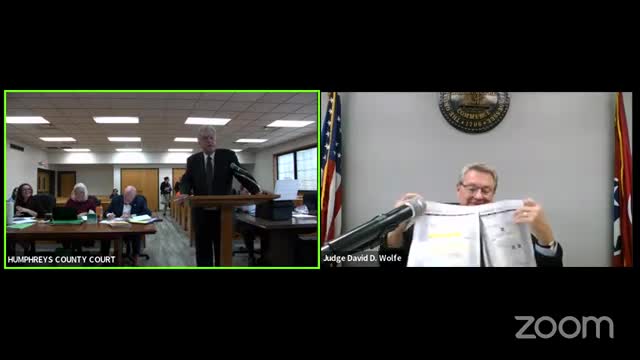Court tells state to clarify allegations in Willis child-neglect case, will review sealed DCS records
Get AI-powered insights, summaries, and transcripts
Subscribe
Summary
The Humphreys County Criminal Court on Thursday ordered the state to clarify what adverse effects it alleges in a child‑neglect bill of particulars and said the judge will review sealed DCS records in camera.
The Humphreys County Criminal Court on Thursday heard defense arguments seeking more detail about the state’s child-neglect charge against a woman identified in court as Willis.
Defense counsel said the bill of particulars does not identify any specific adverse effect on the children — an element the defense says must be stated so counsel can prepare. The prosecutor responded that the state is charging neglect based on Willis’s conduct, including what the state described as “erratic and dangerous” behavior on body-worn video and that one child is a 12-year-old with autism and the other is five. The prosecutor told the court the question of whether the children’s health and welfare were adversely affected is a jury question.
The judge ruled the state had provided sufficient notice for the status stage of the case but ordered two steps to increase clarity before trial: 1) the state must provide any evidence it intends to rely on at least 30 days before any trial date; and 2) the judge will review sealed Department of Children’s Services materials in camera to determine whether the defense should have access to additional facts that bear on the alleged adverse effect.
Defense counsel had argued that the bill of particulars only alleged Willis left the children alone and used language such as "erratic and dangerous" but did not state how that behavior adversely affected the children’s health and welfare, an essential statutory element. The prosecutor said the state’s theory will rely on body-cam footage, witness accounts and DCS records and that the effect on the children is a matter for a jury to decide.
The court set a February status date and directed the state to provide any trial evidence in time to allow defense preparation. The judge also said that if the state discovers new material it intends to use at trial, it must provide that material to the defense at least 30 days before trial.
